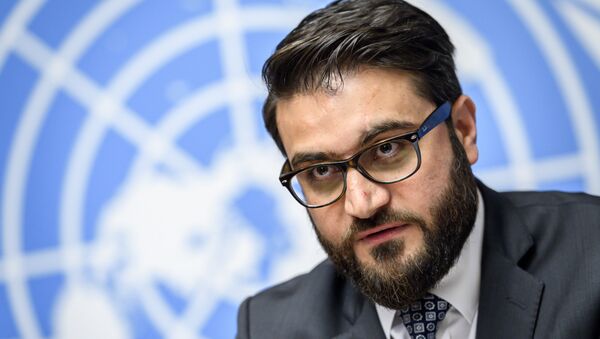The United States privately asked the adviser for a formal apology, suggesting he might be excluded from peace talks otherwise, but Mohib refused, the NBC broadcaster reported, citing people familiar with the situation.
Mohib's refusal and return to Afghanistan from Washington increased the uncertainty over the talks expected to bring peace to Afghanistan.
Meanwhile, US Undersecretary of State for Political Affairs David Hale has reportedly notified Afghan President Ashraf Ghani that Mohib was no longer welcome in Washington or the US in as a whole and that no American officials would deal with him.
READ MORE: US May Drop Kabul From Talks With Taliban Over Official's Criticism — Report
The remark was made in the wake of the United States' talks with the Taliban movement. The latest round of negotiations that wrapped up earlier in March delivered some progress, but no agreement on the withdrawal of foreign troops from Afghanistan. Mohib told reporters it was humiliating that the Afghan government was excluded from the negotiations.
READ MORE: As US-Taliban Talks Progress, Coalition Airstrike Hits Afghan Army Base
The US forces entered Afghanistan in late 2001, soon after the September 11 attack in the United States. The military operation was aimed against al-Qaeda, whose members the United States believed to be in Afghanistan. The Taliban government of Afghanistan was overthrown as the result of the operation, but it regrouped and remained insurgent.
The peace talks in several formats have been ongoing to return peace to the country.
*the al-Qaeda is a terrorist group, banned in Russia



